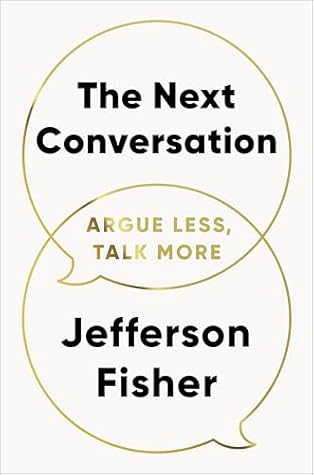More on this book
Community
Kindle Notes & Highlights
Read between
May 3 - September 21, 2025
If I had to choose, what’s the one thing that I’d need them to understand? What small step can I take to show them that I heard them? What assumptions am I making? How can I show gratitude for this opportunity to talk?
Is there a part of this that I’m trying to win?
What do you think I find important in my life based on my daily conversations? What are three words you would use to describe my character to someone who doesn’t know me? What topics of conversation do I get most enthusiastic about? What quality is most important to me in the friendships I have? What emotion do you wish I’d show more of?
What is my goal for this conversation? Which of my values do I need to meet that goal?
You’re living in a world of transmission, not connection.
True connection involves sharing information with depth.
connection is where you decide to roll up your sleeves and approach the conversation for what it is instead of what you want it to be.
can understand and acknowledge you without agreeing with what you said. I can understand and acknowledge you and still be upset with you, hurt by you, or sad.
Connection is both positive and negative. It’s a conduit for the happy and the sad, the easy as much as the difficult. It’s both. You can’t choose the outcome of a conversation. You can only choose whether to try
to connect.
Sometimes not connecting is the right choice. Sometimes disconnection is the answer. Not every co...
This highlight has been truncated due to consecutive passage length restrictions.
Honest communication has nothing to do with what’s happy or comfortable. Connection sometimes means having conversations that are going to be uncomfortable. What you need is the control and the confidence to have them anyway.
you’re woefully unaware of what others see, hear, or experience when you talk. Unaware of your volume, your tics, or your verbal fillers.
Without self-awareness, you stumble around in the dark, unaware of the toes you step on when you speak and fumbling for the keys to your own well-being.
It’s often not the difference in belief or opinion that’s the problem. It’s the failure to understand the difference in perspective. When you bother yourself enough to want to know why someone holds a particular belief, rather than simply criticizing the belief because it’s different from yours, only then will you begin to appreciate their point of view.
The lack of self-assurance not only tanks your self-esteem but also stifles your personal growth.
Confidence doesn’t mean you’re not afraid. It means you do it scared. Confidence doesn’t mean you’re always right. It means you tell them when you’re wrong.
Confidence doesn’t mean you avoid mistakes. It means you embrace them.


